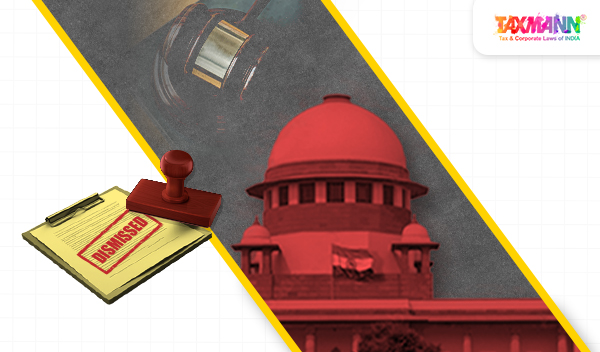Writ Dismissed as Assessee Neither Applied for Revocation Nor Filed an Appeal Within Extended Limitation Period | HC
- Blog|News|GST & Customs|
- 2 Min Read
- By Taxmann
- |
- Last Updated on 12 March, 2025

Case Details: Arvind Singh vs. Superintendent - [2025] 172 taxmann.com 95 (Rajasthan)
Judiciary and Counsel Details
- Manindra Mohan Shrivastava, CJ. & Munnuri Laxman, J.
-
Sharad Kothari, for the Petitioner.
-
Mahaveer Bishnoi, AAG, Mukesh Rajpurohit, Dy. S.G., Uttam Singh Rajpurohit, Kuldeep Vaishnav for the Respondent.
Facts of the Case
The petitioner, a registered taxpayer under the GST law, had his GST registration cancelled by the respondent department. Despite having the statutory remedy of filing an application for revocation under Section 30 of the Central Goods and Services Tax Act, 2017, or an appeal within the prescribed limitation period, the petitioner failed to take any action within the stipulated timeframe. After a prolonged delay, the petitioner filed a writ petition before the Hon’ble High Court, challenging the cancellation order and seeking judicial intervention under Article 226 of the Constitution of India. The petitioner contended that similar matters had been entertained by the court previously and sought discretionary relief for reinstatement of his GST registration.
High Court Held
The Hon’ble High Court held that since the petitioner neither applied for revocation of the cancellation nor filed an appeal within the prescribed or extended limitation period, discretionary relief under Article 226 could not be granted. The court observed that the petitioner had remained indolent for a significant period, failing to exercise the available statutory remedies. Consequently, the writ petition was dismissed. However, the court clarified that the petitioner was at liberty to apply for fresh registration before the competent authority, and the cancellation order would not operate as a bar to such an application.
Disclaimer: The content/information published on the website is only for general information of the user and shall not be construed as legal advice. While the Taxmann has exercised reasonable efforts to ensure the veracity of information/content published, Taxmann shall be under no liability in any manner whatsoever for incorrect information, if any.

Taxmann Publications has a dedicated in-house Research & Editorial Team. This team consists of a team of Chartered Accountants, Company Secretaries, and Lawyers. This team works under the guidance and supervision of editor-in-chief Mr Rakesh Bhargava.
The Research and Editorial Team is responsible for developing reliable and accurate content for the readers. The team follows the six-sigma approach to achieve the benchmark of zero error in its publications and research platforms. The team ensures that the following publication guidelines are thoroughly followed while developing the content:
- The statutory material is obtained only from the authorized and reliable sources
- All the latest developments in the judicial and legislative fields are covered
- Prepare the analytical write-ups on current, controversial, and important issues to help the readers to understand the concept and its implications
- Every content published by Taxmann is complete, accurate and lucid
- All evidence-based statements are supported with proper reference to Section, Circular No., Notification No. or citations
- The golden rules of grammar, style and consistency are thoroughly followed
- Font and size that’s easy to read and remain consistent across all imprint and digital publications are applied



 CA | CS | CMA
CA | CS | CMA
